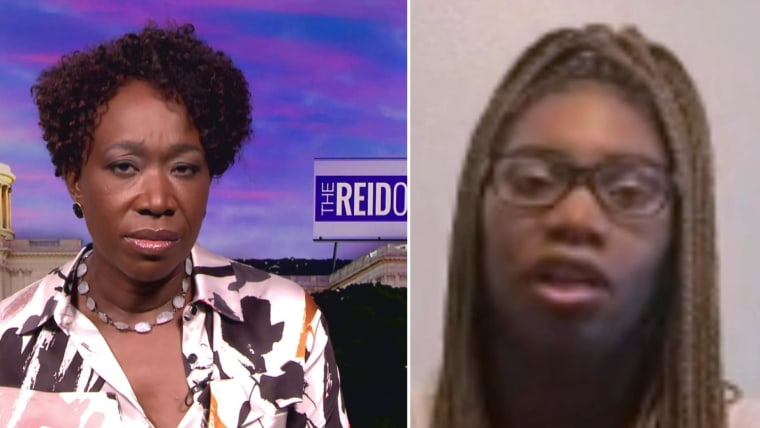The Colorado attorney general is investigating whether the Aurora Police Department permits "patterns and practices ... that might deprive individuals of their constitutional rights" after Elijah McClain, a young Black man, died in officers' custody last year.
The announcement of the investigation Tuesday came the same day McClain's family filed a federal lawsuit alleging that his civil rights were violated on Aug. 24, 2019, when officers placed him in a chokehold and paramedics injected him with a large dose of ketamine, a powerful sedative. McClain, 23, died days later.
Attorney General Phil Weiser, a Democrat, said in a statement Tuesday that an investigation had been going on "for several weeks now," and that it was authorized as part of a sweeping law enforcement accountability bill that Gov. Jared Polis, also a Democrat, signed into law in June.
Weiser declined further comment.
The Aurora Police Department tweeted that Weiser contacted Police Chief Vanessa Wilson on Tuesday and that the department is "steadfast in our commitment to transparency and earning the trust of our community back."
Wilson also pledged "full cooperation with this investigation."
The Aurora Police Association, a union representing more than 240 officers, did not immediately respond Wednesday to a request for comment.
The Aurora Police Department drew additional scrutiny this month after a viral video showed officers with guns drawn on a group of Black women and girls who had been ordered to lie face down in a parking lotwhile some of them were handcuffed. The group cried and screamed, with one young girl yelling, "I want my mother!"
The officers had stopped their car on the belief that it was stolen because it shared the plate number of a stolen motorcycle, Aurora police spokeswoman Faith Goodrich said. But after determining the car was not stolen, police then "unhandcuffed everyone involved, made efforts to explain what happened, and apologized," Goodrich said.
Brittney Gilliam, the driver of the car, said on MSNBC last week that the department's apology "is not good enough for me" and that officers at the scene weren't sorry.
While Goodrichsaid officers are trained in "high-risk stops" when a vehicle is believed to have been stolen, officials also acknowledged there is no written policy on such stops and "officers can use discretion based on the information they have at the time."
Wilson later apologized for what she said was "traumatic and horrific."
"It's unfortunate that it happened," she told NBC affiliate KUSA, adding that the department needs to look at new training to "drive change" and give officers "the ability to say, 'Hey we need to stop this, and feel OK to do that.'"
David Lane, a civil rights attorney representing Gilliam, said that his firm has sued Aurora police "dozens and dozens of times for this exact same type of behavior."
"They are there to occupy and intimidate," he said of police. "They are not there to serve and protect."
The death of McClain drew renewed attention in the weeks after the killing of George Floyd, a Black man who died in May while in police custody in Minneapolis, leading to national protests against systemic racism and police brutality.
McClain, a massage therapist, was walking home after buying iced tea from a corner store, according to his family, when he encountered Aurora police, who were responding to a report of a "suspicious person." McClain at the time was wearing long sleeves and a ski mask, which his family said he needed because he had a blood condition that made him feel cold.
The incident, which was captured on officers' bodycam, soon escalated. "[T]he male resisted contact, a struggle ensued, and he was taken into custody," police said in a statement.
According to the family's lawsuit, "in a span of eighteen minutes, Defendants subjected Elijah to a procession of needless and brutal force techniques and unnecessary, recklessly administered medication, the combined effects of which he could not survive."
Authorities said officers applied a carotid control hold on McClain, a type of chokehold meant to restrict blood to the brain to render a person unconscious. Paramedics were called to the scene, and McClain was injected with ketamine to sedate him after body cam showed him writhing on the ground saying, "I can't breathe, please," and vomiting. He apologized for vomiting.
About seven minutes after he received the drug, McClain was found to have no pulse in the ambulance and went into cardiac arrest, according to a report last fall by a local prosecutor, Dave Young. Medics were able to revive McClain, but he was later declared brain dead, and he was taken off life support less than a week later.
The Adams County Coroner's Officedetermined that McClain's death was due to "undetermined causes," and that the "evidence does not support the prosecution of a homicide," according to Young's report. Young declined to press charges against the officers.
But the coroner did not rule out that the chokehold, in addition to the ketamine, might have contributed to his death.
In June the Aurora police banned carotid control holds. That same month, Polis appointed a special prosecutor to investigate McClain's death, and separately, federal authorities said they were reviewing whether a civil rights investigation is warranted.
In addition, the three officers involved in taking McClain into custody were moved to "nonenforcement" duties in late June.
But the department continued to garner negative attention. In July, three other Aurora police officers were fired from the force after an internal investigation found they held a selfie photo session in October near a memorial site for McClain. A fourth officer also resigned.
Wilson said last month she only learned about the picture in June. The officers, she said, told investigators that they "were trying to cheer up a friend by sending that photo," but that she was unconvinced.
"We are ashamed, we're sickened and we're angered," Wilson said at the time. "I am disgusted to my core."
The Aurora Police Association said the officers were denied fair hearings.



